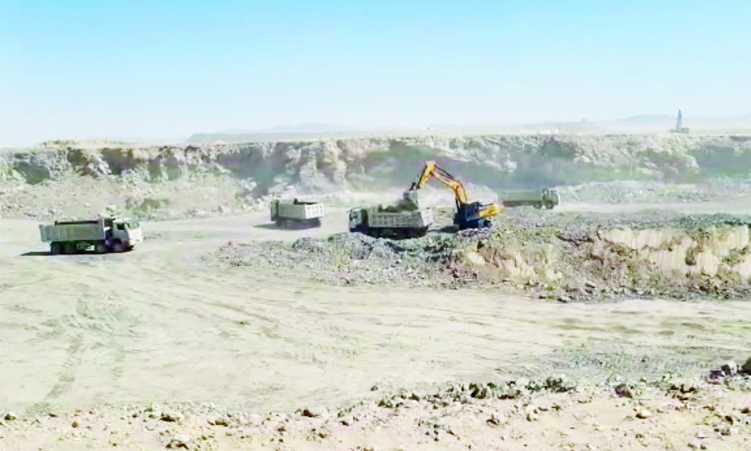Business consultant Steve Galloway has raised concerns over the recent Cabinet decision on critical minerals and its potential unintended consequences.
Last week the Cabinet approved the prohibition of exporting unprocessed crushed lithium ore, cobalt, manganese, graphite, and rare earth metals and elements.
The announcement was made by the deputy minister of information and communications technology, Emma Theofelus, during a Cabinet briefing on NBC Television.
“Smaller quantities of the above-mentioned minerals may be allowed for export at the discretion of the minister of mines and energy, subject to Cabinet endorsement,” she said.
However, she did not provide a specific definition for “smaller quantities”.
While acknowledging the need to address the uncontrolled mining and export of especially lithium ore, Galloway believes the moratorium on other minerals could result in negative outcomes.
“Previous draconian, yet vague announcements . . . has caused considerable uncertainty around the policy frameworks and intent of the government,” he says.
Blanket and ambiguous directives, according to Galloway, will not achieve the intended goals of responsible resource stewardship in Namibia.
Minister of mines and energy Tom Alweendo has remained silent on the matter since last week when The Namibian contacted him.

SMALL-SCALE MINERS AFFECTED
At present, small-scale miners in the Erongo region own claims with significant lithium deposits.
Legend Nafuka, a small-scale lithium miner, wants to know whether the ministry would build small-scale miners a processing plant.
“… or if he intends to leave us at the mercy of large mines and subject us to exploitation. This decision will also increase our operational costs, since we will have to transport the ore to the processing plants and then to the market,” he says.
Graphite is mined by Okanjande Mine near Otjiwarongo and exported as a concentrate product.
Otjozondu Manganese Mining operates outside Okahandja to extract manganese, a crucial component in steel production, which Namibia currently lacks.
Economic researcher Rodney Hoaeb advises caution and highlights the potential downsides of an imminent ban.
He points to Zimbabwe’s experiences in the lithium sector, where challenges related to export concessions and stockpiles resulted in supply and uptake constraints.
“Miners were not well equipped in their upstream commitments and couldn’t strengthen the terms and conditions of their local trade, which escalated the levels of underselling.
“Policy changes should extrapolate any adjacent challenges to stabilise and subsidise the locals against high capitalised companies. In the same vein, implement strategies for fairness, supervision and transparency,” he says.
Hoaeb believes the effective application of policies and regulations, along with constructive dialogue, will boost optimism among local players.
The president of the Chamber of Mines, Zebra Kasete, did not answer his phone or respond to the questions sent to him by the time of going ot print.
Namibia Economic Freedom Fighters (NEFF) deputy leader Kalimbo Iipumbu last week expressed his party’s full support of the Cabinet resolution.
According to him the decision is expected to increase the value of Namibia’s mineral exports.
“By adding value to our lithium resources, Namibia will be able to command higher prices in the global market. This will bolster our economy, create additional revenue streams, and reduce our reliance on the export of raw materials,” Iipumbu said.
Stay informed with The Namibian – your source for credible journalism. Get in-depth reporting and opinions for
only N$85 a month. Invest in journalism, invest in democracy –
Subscribe Now!






